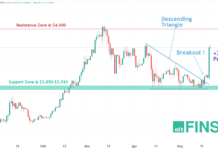by Mart Parve
Now that the crypto business, and ICOs in particular, have become kind of a big thing, the regulators are leaning in heavily. There are many responsible voices in the crypto industry that support this direction, and consider it the only way to leave the Wild West epoch behind and become widely accepted and recognized part of the financial industry.
I’m not so certain. While it’s true that the ICO scene is infested with scams, schemes and false promises, government regulation might not be the only solution.
Firstly, and most obviously: regulation stifles innovation, with especially harsh effects on smaller startups (Thomas, 1990). Regulating any industry in its infancy effectively benefits incumbents and suffocates new entrants, at the expense of the small guys — consumers, startups, retail investors, labor market participants.
Secondly, and somewhat less obviously: government regulation is limited in its scope and doesn’t incentivize improvement. Theranos was impeccably SEC-compliant, and we all know what came of it. Now if Theranos were an ICO, the crowds would have quite probably discovered a lot earlier that something is fishy, and not contributed their funds.
Thus, I strongly believe that market forces would regulate the industry far more effectively than bureaucrats while benefiting both the industry and investors instead of hurting them.
From then on, it would be the responsibility of investors to demand accountability and transparency, and since demand is met by supply, ICO, token and coin startups will certainly take notice.
We would essentially end up with “regulatory competition” — instead of merely meeting the rigid requirements set by SEC and alike, companies will seek new and innovative means to surpass each other in accountability and transparency. Thus, I strongly believe that market forces would regulate the industry far more effectively than bureaucrats while benefiting both the industry and investors instead of hurting them.
- Black J. (2001). Decentring Regulation: Understanding the Role of Regulation and Self-Regulation in a ‘Post-Regulatory’ World, Current Legal Problems, Volume 54, Issue 1, 1 January 2001, Pages 103–146, https://doi.org/10.1093/clp/54.1.103
- Thomas, L. (1990). Regulation and Firm Size: FDA Impacts on Innovation. The RAND Journal of Economics, 21(4), 497–517. Retrieved from http://www.jstor.org/stable/2555465















